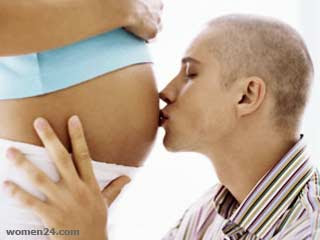 Many men suffer emotionally when they lose their spouse their babies, according to a new study, but they recovered more quickly from their grief than that experienced by women.
Many men suffer emotionally when they lose their spouse their babies, according to a new study, but they recovered more quickly from their grief than that experienced by women.To investigate, Dr. Grace Kong from Prince of Wales Hospital in Hong Kong and colleagues followed 83 development partner for one year after the miscarriage. They use two tests to determine levels of psychological stress in men and women: the General Health Questionnaire 12-points (GHQ-12) and the Beck Depression Inventory (BDI). None of the study participants had a history of mental illness.
Immediately after the miscarriage occurred, the researchers found more than 40 percent of men suffering from psychological pressures striking, as shown by measurements with the GHQ-12. But within three months, only seven percent reported a similar level of grief, and one year later, only five percent of men still feel depressed. But among women, 52 percent have a noticeable sadness soon after miscarriage. More than 20 percent still feel depressed three months later, 14 percent are still unhappy after six months, and eight percent reported they were still suffering a year later.
All the findings were the same as using the BDI: immediately after the miscarriage, 26 percent women and 17 percent of men have high levels of sadness; three months later, 12 percent of women and seven percent of men are still depressed. One year later, 10 percent women and seventy percent of the men still have a noticeable pressure symptoms, according to Reuters Health.
Women who experience miscarriage are more problematic were more likely to suffer grief after the miscarriage, the same as those who have seen the baby via ultrasound pulse before losing their pregnancies. But the only factors that independently predict whether, or not, a man will be afflicted sad is whether the pregnancy was planned. Pregnancy planned to have important risk factor for high levels of depression soon after the event.
The study also found that men are more likely to be optimistic about the future possibility of pregnancy compared with women; this might have something associated with sadness, the researchers said tersebut.Hasilnya, published in the journal BJOG obstetrics, showed that psychological impact due to miscarriage in men "not too severe and heavy" compared to those experienced by women, the researchers said.
Because both partners are very sad immediately after the miscarriage, Kong and his team say every intervene to help couples should be done immediately after a miscarriage
No comments:
Post a Comment